Suchergebnisse
Innovative Energy Technologies in Austria: Market Development 2020
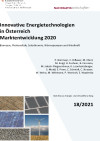
Biomass, Photovoltaic, Solarthermal collectors, Heat pumps and Wind power
18/2021
P. Biermayr, C. Dißauer, M. Eberl, M. Enigl, H. Fechner, B. Fürnsinn, M. Jaksch-Fliegenschnee, K. Leonhartsberger, S. Moidl, E. Prem, C. Schmidl, C. Strasser, W. Weiss, M. Wittmann, P. Wonisch, E. Wopienka
Herausgeber: BMK
Deutsch, 273 Seiten
Downloads zur Publikation
Workshop "Biorefineries on their pathway towards net-zero emissions"
7. November 2023
Online
The IEA IETS Task 11 workshop on "Biorefineries on their pathway towards net-zero emissions" collects case studies and methodologies from industry and research on how net-zero emissions can be achieved in biorefineries.
BIPV as Architectural Tool
15. June 2018
TU Wien, Getreidemarkt 9, 1060 Wien, AT
Within the international meeting of the IEA PVPS Task 15 "Enabling Framework for the Acceleration of Building integrated Photovoltaics (BIPV)", a workshop on "BIPV as Architectural Tool" is organized providing the opportunity to meet local PV-Architects and BIPV stakeholders.
IEA TCP Fluidized Bed Conversion (FBC). Working period 2013-2016
The Technology Collaboration Programme includes the collaboration, the exchange of relevant information and networking in the area of fluidized bed conversion of fuels applied for clean energy production.
Renewables 2010 Global Status Report
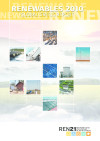
Englisch, 80 Seiten
Downloads zur Publikation
The Korean Energy Strategy Project (Minchener, 04-2008)

Englisch
Solar Heating and Cooling in Austria
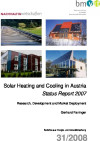
Status Report 2007
Research, Development and Market Deployment
Schriftenreihe
31/2008
Gerhard Faninger
Herausgeber: BMVIT
Englisch, 42 Seiten
Downloads zur Publikation
Whitepaper "Smart Grid Cyber Security"
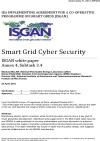
M. Miller, D. Haglund, Gunhee Lee
Herausgeber: International Smart Grid Action Network (ISGAN) Annex 4, Subtask 3.4
Englisch, 16 Seiten
Downloads zur Publikation
Workshop: Life in the Fast Lane - Evolving Paradigms for Mobility and Transportation Systems of the Future
26. - 27. October 2016
Washington, DC
A Workshop to Determine Research & Development Needs and Supporting Policies.
IEA FBC Implementing Agreement Fluidized Bed Conversion (working period 2017 - 2020)
The technology programme includes the collaboration, the exchange of relevant information and networking in the area of fluidized bed conversion of fuels applied for clean energy production.
IEA FBC Technology Collaboration Programme Fluidized Bed Conversion (Working Period 2024-2026): "IEA Green FBC"
The goal is to further expand and deepen the international cooperation of IEA fluidized bed technology both globally and nationally with regards to green technologies and to continue the successful course towards a most climate-friendly, sustainable and low-pollutant heat and power production using fluidized bed technology. All stakeholders are included and work closely together on a national and global level.
Technology Roadmap: Energystorage (2014)
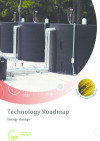
Herausgeber: International Energy Agency
Englisch, 64 Seiten
Downloads zur Publikation
Bioenergy: Counting on Incentives (2010)

Response to the paper by D. Searchinger et. al., Letters to Science. 327 (2010), 1199 - 1200.
Pingoud K., Cowie A., Bird N., Gustavsson L., Rüter S., Sathre R., Soimakallio S., Türk A., Woess-Gallasch S.
Englisch
IEA-Task 42 Study: Bio-based chemicals
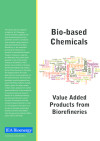
Value added products from biorefineries
Herausgeber: International Energy Agency, Task 42 (Bioraffinerie)
Englisch, 28 Seiten
Downloads zur Publikation
Implications of forestry carbon offsets for the coal industry (Kessels/Hennessy/Bakker, 02-2006)

Englisch
CLIMA 2016 - 12th REHVA World Congress
22. - 25. Mai 2016
Aalborg Kongres & Kultur CenterAalborg, DK
The scope of the congress is to offer researchers, industry, building owners, end users, consultants, engineers, architects, policy-makers, etc. a platform for the exchange of scientific knowledge and experiences on innovative technical solutions and on practical applications and technical solutions.
IEA Bioenergy News, Vol. 27/#1/June 2015
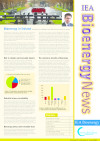
Herausgeber: Paul Derham, odbtbioenergy
Englisch, 8 Seiten
Downloads zur Publikation
Webinar: PVT Certification - lessons learnt when certifying PVT products
9. April 2019
online
The webinar gives an overview of the Photovoltaic/thermal Systems (PVT) certification.
European legislation (revised LCPD and EU ETS) and coal (Nalbandian, 03-2007)

Englisch
